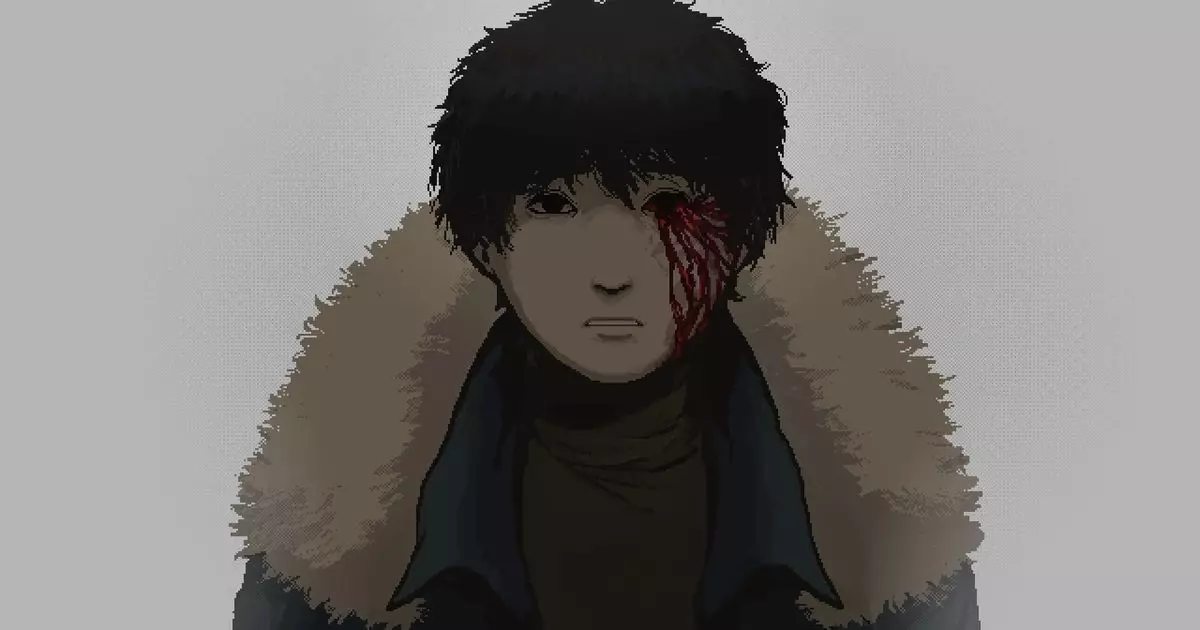Role-playing games (RPGs) have long captivated audiences through complex narratives, intricate worlds, and the all-important element of character interaction. A key component of this interaction is the development of relationships between player-controlled characters and their companions, such as is frequently seen in the Persona series. However, the relationship dynamic explored in the indie game Downhill introduces a compelling twist: a direct bond between the player and the protagonist, blurring the lines of typical gameplay and narrative engagement.
In most RPGs, players assume the role of a character, projecting their own desires and motivations onto them. Downhill challenges this paradigm by crafting a protagonist, Fade, who is acutely aware of the player’s existence. This self-awareness opens the door to a unique relationship that allows the player not just to shape Fade’s narrative but also to become emotionally entwined with her actions and wellbeing. Rather than simply a vehicle through which the player enacts their will, Fade emerges as a partner in the story, providing a fascinating opportunity for moral consideration and emotional engagement that few games venture to explore.
The Concept of Power and Agency
At the heart of Downhill’s narrative lies a profound exploration of power dynamics, particularly the often inherent imbalance between player and character. As explained by Sisterhood Games, the core theme revolves around the ideas of agency and the potential for abuse of power. Players traditionally wield ultimate control over their characters, but what occurs when that character develops autonomy? This question resonates deeply within the RPG community, as it raises issues of consent, control, and the narratives we project onto fabricated personas.
As players navigate through Downhill, they will not only confront external challenges—such as fierce enemies and perilous landscapes—but also navigate the internal struggles of their protagonist. The premise pushes players to actively reflect on their choices: will they support Fade in her times of need, or will they drive her toward darker paths? This relationship-driven gameplay fosters an environment where players must assess their motivations, forcing a deeper engagement with both the story and their character’s psyche.
A Unique Dialogue System
One of Downhill’s standout features is its dialogue system, which brings a refreshing twist to the classic RPG mechanic of conversation. Instead of merely interacting with NPCs, players find themselves in a continual dialogue with Fade. This interaction does not just affect gameplay mechanics or quest outcomes; it shapes the emotional landscape of the game, influencing how Fade perceives the player and, by extension, her development throughout the story.
The dialogue options range from benign inquiries about Fade’s state of mind to more confrontational choices that compel her to confront adversities head-on. This multi-faceted approach to interaction not only deepens the character development but also positions the player as an emotionally invested entity in Fade’s journey. This level of engagement is distinctive, as it diverges from the traditional RPG experience and poses a radical invitation to rethink how we interact in gaming narratives.
A Dark Fantasy Aesthetic
Complementing these inventive mechanics is Downhill’s striking visual and thematic aesthetic. The game portrays a dark fantasy world populated with unsettling creatures and haunting landscapes. This aesthetic choice amplifies the emotional stakes through an atmosphere that feels both immersive and disconcerting. The juxtaposition of the beautiful yet eerie environments enhances the storytelling, encouraging players to grapple not just with the character they are guiding but also the universe that shapes their challenges.
In this context, it becomes apparent that visual and narrative elements are inextricably linked in Downhill. The game is not merely a vehicle for gameplay mechanics; it serves as a canvas for exploring profound themes of identity, agency, and the impact of one’s choices on others. In this world, every interaction invites introspection, allowing players to confront the darker aspects of power and compassion.
The Call for Support
Currently seeking funding on Kickstarter, Downhill represents a bold leap into uncharted territory within the RPG genre. The innovative relationship between the player and Fade, bolstered by a unique aesthetic and intriguing narrative themes, presents a rich opportunity for exploration. As potential backers consider their support, the promise of a game that not only entertains but also invites moral contemplation is a proposition that is hard to resist.
For those intrigued by this unconventional approach to storytelling in gaming, the chance to play a demo or add Downhill to their Steam wishlist stands as an essential step into a world that questions the very fabric of player-character relationships.


Leave a Reply